The Irish Times asked in late September ‘Why is there a Chinese police outpost on Dublin’s Capel Street?’ Located between two Asian restaurants on the trendy street which runs to the Liffey River in the heart of the nation’s capital was the Fuzhou Police Overseas Service Station, the description prominently displayed in both English and Chinese language on the door. Questioned by Irish authorities, the Chinese Embassy claimed the station offered administrative assistance to Chinese living in the country, such as facilitating driver’s licence renewals. It denied any law enforcement role. The stations were established by government authorities from Fuzhou in Fujian province. Known as the ‘Overseas 110’ initiative after the Chinese emergency services telephone number, the Fuzhou police subsequently admitted that some thirty stations had been opened in 21 countries. Following an investigation by Ireland’s Department of Foreign Affairs, which found the presence of the station to have breached both international and domestic laws, the operation was forced to close.
Dutch authorities also ordered an investigation into the establishment of two similar operations in The Netherlands, one in Amsterdam and the other in Rotterdam. One had been set up by police from the city of Lishui in Zhejiang province, the other by Fuzhou authorities. Former Chinese police and defence personal were operating the stations. The Dutch too have ordered the closure of the stations. Fourteen nations have initiated investigations into the presence of the stations in their countries, including Spain, where at least nine stations had been discovered, Portugal and Canada, where three were uncovered in Toronto. An official from the Chinese Ministry of Foreign Affairs in Shanghai, who spoke on condition of anonymity, told the Spanish newspaper El Correo, ‘the bilateral treaties are very cumbersome and Europe is reluctant to extradite to China. I don’t see what is wrong with pressuring criminals to face justice….’
The presence of the stations was exposed in a report by the human rights organisation Safeguard Defenders which claimed that fifty-four overseas police stations had been established in five continents. These stations were involved in a range of activities, including ‘persuading’ a reported 230,000 Chinese to return home last year and this year.
The operations, combined with the work of United Front Work Department groups in most countries, linked organisations across five continents in order to ‘resolutely crack down on crime’ and ‘extend the Procuratorate’s tentacles’ worldwide. A central government announcement also established a pilot scheme for ten provinces to carry out similar work and operations, indicating a further expansion to come. While rejecting the claims that Chinese police were stationed at the overseas offices, a Foreign Ministry spokesman acknowledged that ‘local overseas Chinese’ were engaged in the operations. As Clive Hamilton outlined in Silent Invasion, shadowy United Front groups have infiltrated many organisations, acting as both spies and propaganda agents in the West. The work of the United Front was highlighted by Xi Jinping recently when he said it ‘plays a more important role in gathering broad support to concentrate on the central tasks and serve the overall interests of the country.’
According to Safeguard Defenders, ‘legally sanctioned methods under the PRC’s National Supervision Law range from detaining family members back in China, to sending police overseas on secret missions to intimidate targets into returning, to outright kidnappings abroad.’ Tools for ‘persuasion’ operations include denying the target’s children in China the right to education, and other limitations on family members and relatives, hence punishing those innocent of wrongdoing through ‘guilt by association’.
Authorities in the US recently indicted seven Chinese nationals engaged in a ‘law enforcement action on US soil on behalf of the government of the People’s Republic of China, in an effort to cause the forced repatriation of a US resident to China’. According to the United States attorney for the eastern district of New York, ‘the United States will firmly counter such outrageous violations of national sovereignty and prosecute individuals who act as illegal agents of foreign states’. The ring leader Quanzhong An worked directly with officials in the Chinese government to forcibly repatriate a Chinese national and his family, according to the authorities. The seven repeatedly threatened the victim and the victim’s family members, the indictment claims. ‘The victims in this case sought to flee an authoritarian government, leaving behind their lives and family, for a better life here. That same government sent agents to the US to harass, threaten, and forcibly return them to China.’
It is unclear whether Chinese police stations operate in Australia, although one media report suggested the presence of a ‘contact point’ for the city of Wenzhou in Zhejiang, one of the Chinese provinces active in the overseas activities.
The CCP asserts that members of the Chinese diaspora should retain an allegiance to the country. A new law, enacted in September, which comes into operation on 1 December, establishes full extraterritoriality over all Chinese nationals globally when pursuing a number of crimes including fraud, telecom fraud and on-line scams. CCP authorities have also threatened foreign human rights campaigners with charges under national security laws even though they are neither citizens nor residents of China.
The brazen attitude of Chinese officials was on full display in Manchester recently when the CCP consulate staff dragged a peaceful Hong Kong protester into the consulate grounds before beating him up. The victim had hair ripped from his scalp, along with severe bruising and injuries to his face. The consulate officials tore down several protest banners, including one with the slogan ‘Heaven will destroy the Chinese Communist Party’, and a caricature of Mr Xi wearing a crown.
Apart from closing the Chinese police stations, Europeans are finally realising the nature of the communist regime. Last week, the European Court of Human Rights effectively banned member states from extraditing anyone under its jurisdiction to China. The Court attached considerable weight to various UN and other reports about the prevalence of torture in Chinese prisons, stating ‘it considers that the extent to which torture and other forms of ill-treatment are credibly and consistently reported to be used in Chinese detention facilities and penitentiaries, may be equated to the existence of a general situation of violence.’
In the meantime, the situation in the Solomon Islands has become more problematic. Thirty of the nation’s police travelled to China in September for training under an agreement between the CCP and the Sogavare government. Australia responded by providing 60 semi-automatic rifles and 13 new vehicles to the Islands’ police, leading China to supply two water cannons, 30 motorcycles and 20 four-wheel drive vehicles. The grave danger is that this equipment will be used in a heavy-handed manner against the democratic groups in the Solomons that are opposed to Prime Minister Manesseh Sogavare.
Got something to add? Join the discussion and comment below.
Get 10 issues for just $10
Subscribe to The Spectator Australia today for the next 10 magazine issues, plus full online access, for just $10.
You might disagree with half of it, but you’ll enjoy reading all of it. Try your first month for free, then just $2 a week for the remainder of your first year.

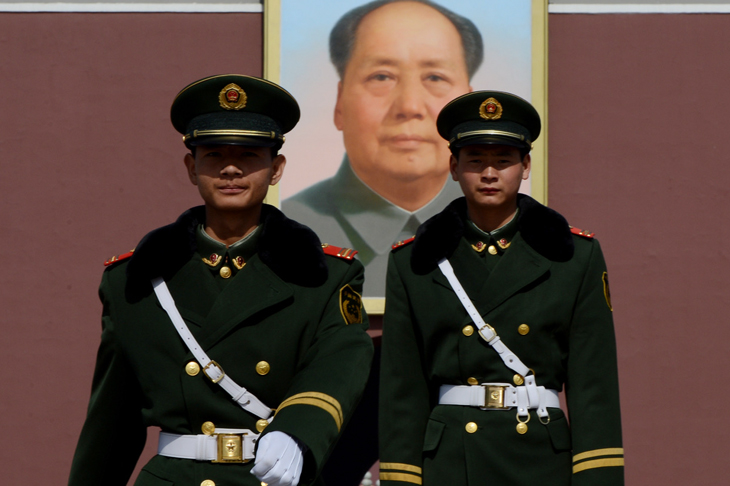
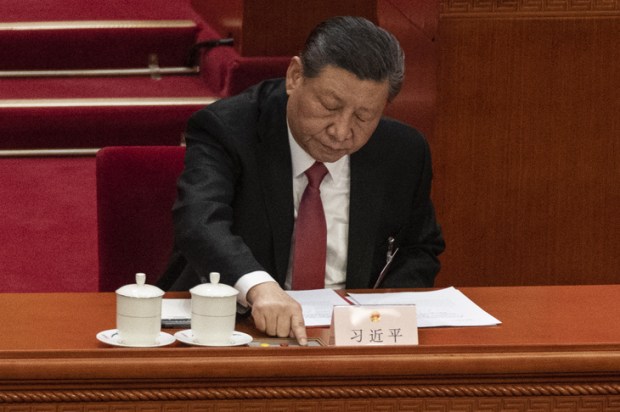
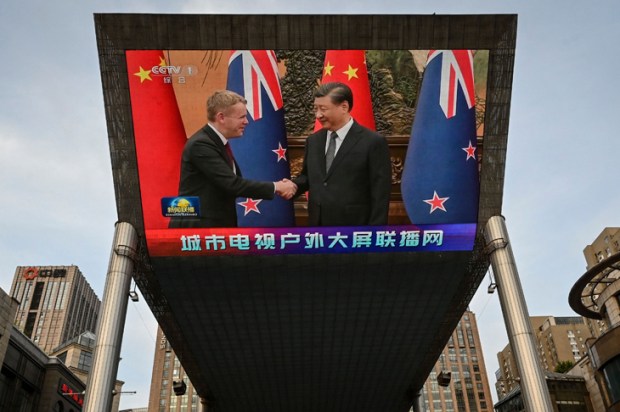
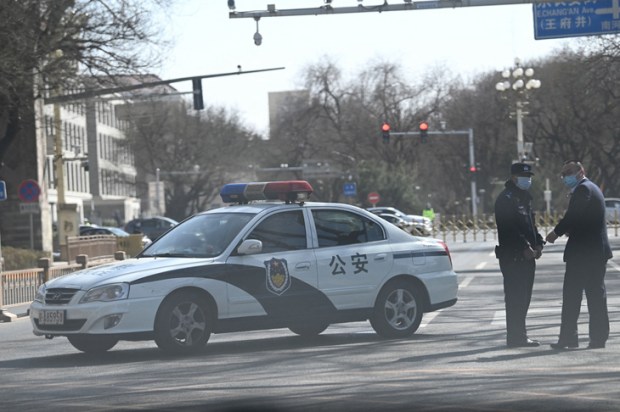
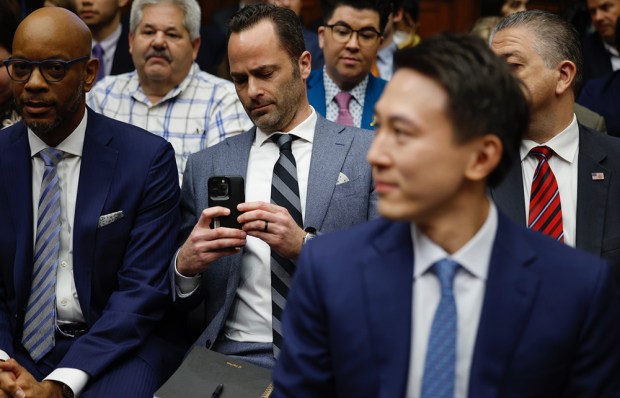
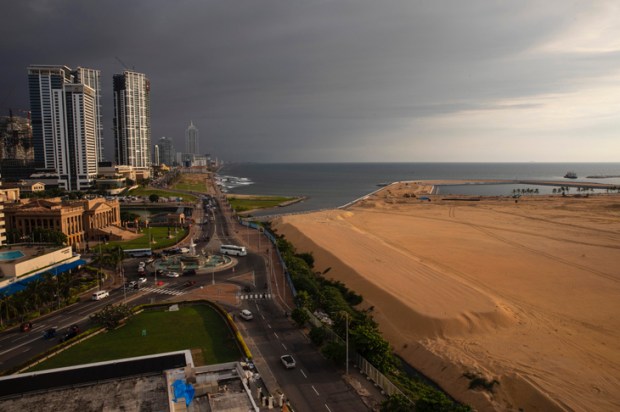
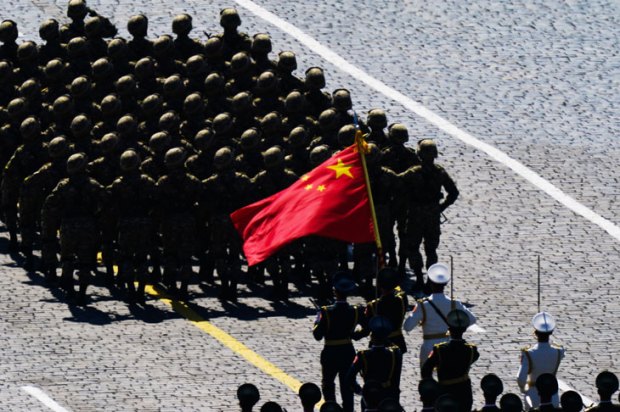






Comments
Don't miss out
Join the conversation with other Spectator Australia readers. Subscribe to leave a comment.
SUBSCRIBEAlready a subscriber? Log in